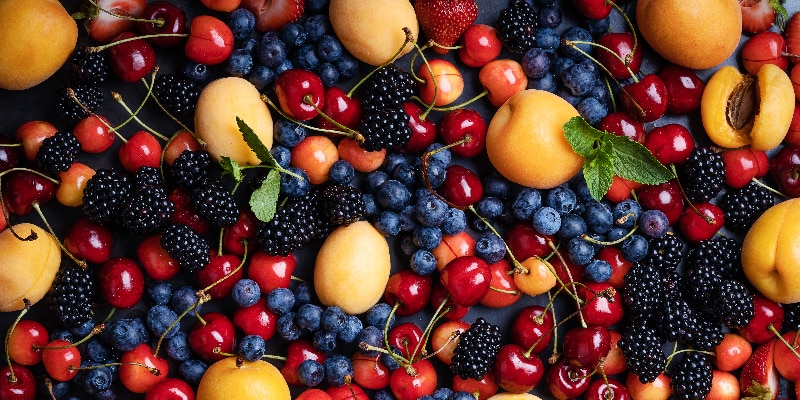by Melissa Chichester
If not, don’t worry! In the simplest terms, antioxidants help keep free radicals in check. Read on for more.
Antioxidants are naturally occurring compounds that slow the process of oxidation. Oxidation is a chemical reaction that occurs that may damage cells. It’s the same reason apples and other fruits turn brown when they’re exposed to air. Your body makes antioxidants. They’re also found in fruits, vegetables, whole grains, teas, nuts and seeds, and supplements.
Antioxidants neutralize free radicals. Free radicals are destructive in nature because they are unstable. In an attempt to stabilize themselves, free radicals look for electrons from other molecules. This results in oxidative stress, which can damage healthy cells by taking electrons away from them. Antioxidants help stop this process by donating electrons to free radicals. As a result, they help shield healthy cells.
For many years, you’ve probably heard the buzz about antioxidants – and it’s not just media hype. Antioxidants perform vital functions in the body. The good news is it’s easy to increase your intake of antioxidants. Fruits and vegetables are the best way to increase your antioxidant intake. The more colorful your plate, the more antioxidants you’re eating!
Many foods are high in antioxidants. However, to increase your intake, here are some of the best fruits and vegetables to eat to increase antioxidants according to the Cleveland Clinic:
This is by no means an exhaustive list. The best advice to follow to get antioxidants? Eat the rainbow!

The abundance of research around antioxidants has allowed scientists to discover the benefits of specific nutrients.
Lycopene is a vibrant red carotenoid pigment found in tomatoes and other red fruits and vegetables, including watermelon, grapefruit, mangos, tomatoes, and papayas.
Lycopene is one of the most predominant carotenoids in human blood. Studies show that lycopene is one of the major carotenoids in the prostate gland, making it a valuable men’s health nutrient that supports prostate health.* Lycopene also supports heart health.*
>>4 Nutrients to Look for in a Men’s Multivitamin
Resveratrol is a polyphenol antioxidant found in the skin of red grapes. Red wine and dark chocolate both contain resveratrol. Resveratrol helps support sugar metabolism.* It also supports heart health by supporting blood flow and vascular function.* With resveratrol supplements, you can get more of this antioxidant than you normally would from dietary sources.
Let’s travel to France for this next unique antioxidant. The Les Landes de Gascogne forest in southwestern France is home to a special species of pine trees. In the bark of these trees is Pycnogenol®, an extract with antioxidant properties. Pycnogenol has been clinically studied for well over a decade. It supports healthy heart and blood circulation and glucose levels already within a normal range.*
Astaxanthin is a naturally occurring carotenoid found in fish and algae. As an antioxidant, astaxanthin helps fight free radicals throughout the body.* Free radicals can cause oxidative stress, which may damage cells. Furthermore, supplementing with at least 4mg per day has been shown to help the skin maintain a natural, healthy glow.*
As the principal carotenoid found in the macula, a central area of the retina, lutein plays a big role in supporting healthy vision.* Specifically, lutein helps filter out the damaging blue light we expose ourselves to when using computers.*
Zeaxanthin is a carotenoid that supports vision and eye health.* Zeaxanthin is present in the macula’s foveal center, the area most responsible for sharp, central vision.
There are many different antioxidants available in fruits, vegetables, and supplements. The best way to increase your intake is to eat a well-rounded diet rich in colorful fruits and vegetables. For a more targeted approach, supplements can help. Always discuss taking antioxidant supplements with your doctor before trying something new.